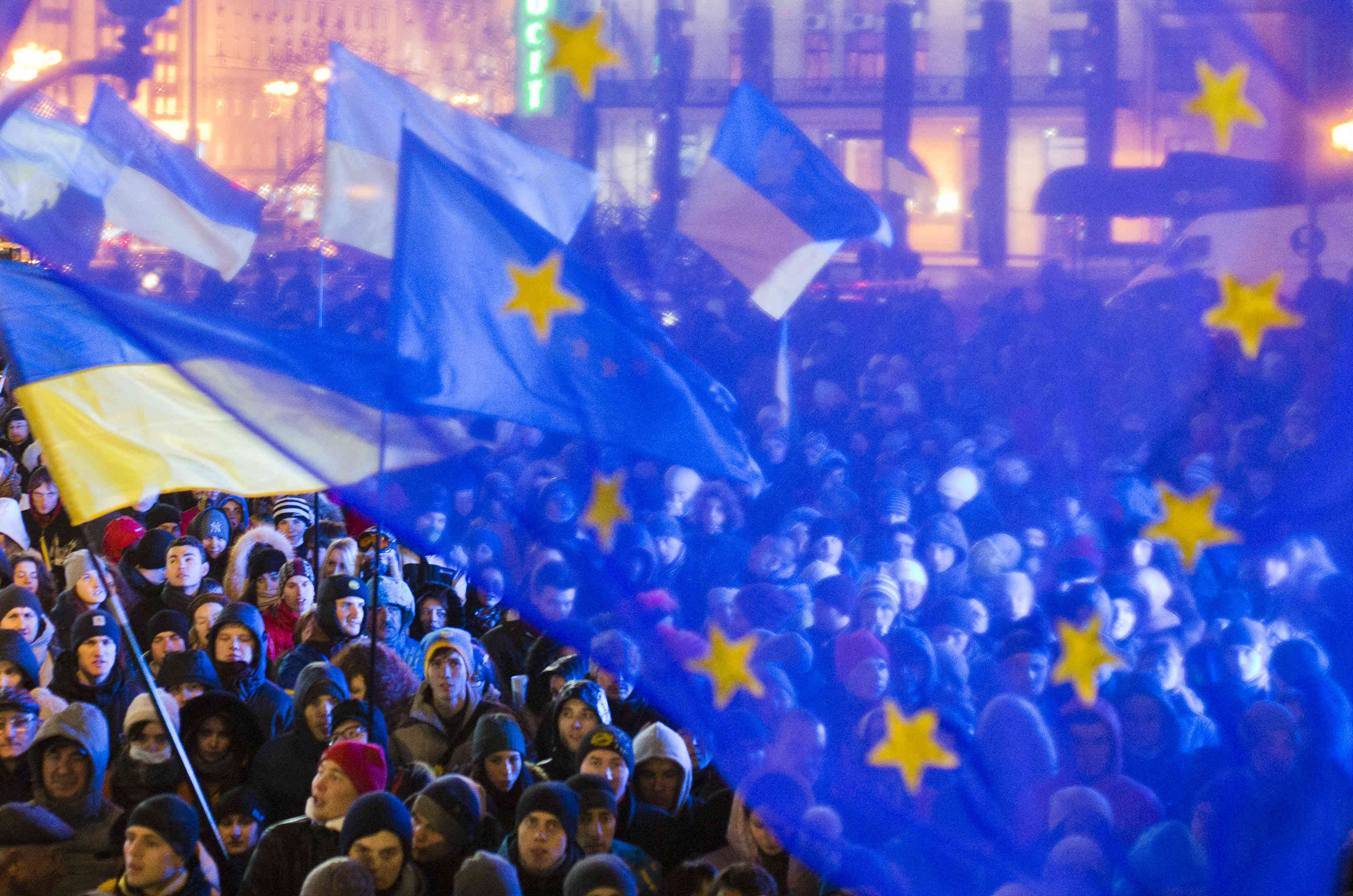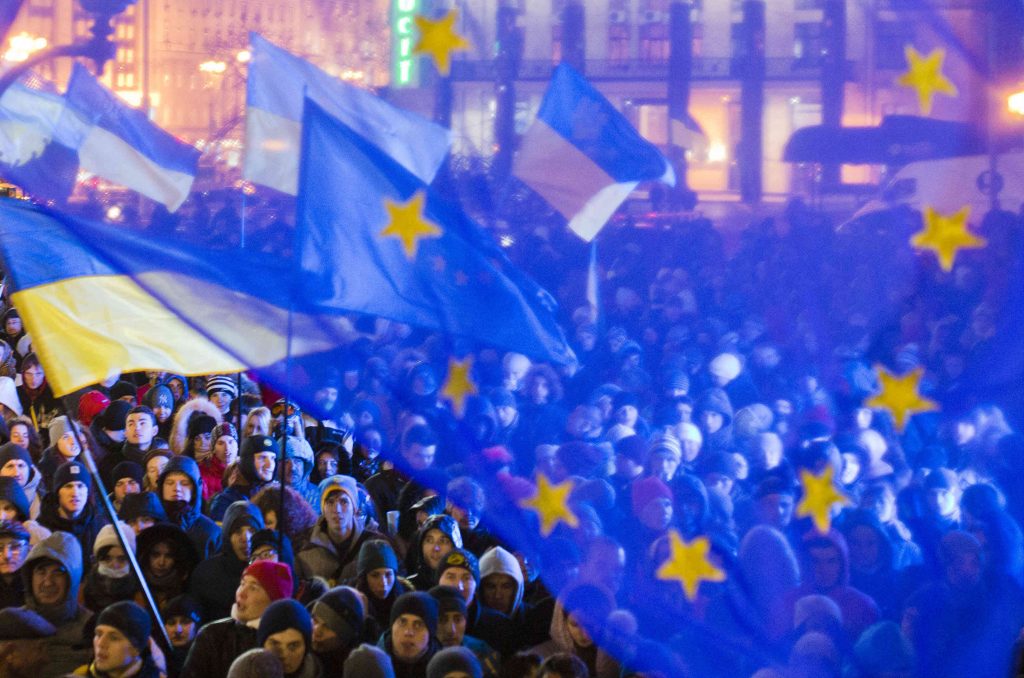 What is wrong with Vladislav Inozemtsev’s recent opinion piece on how to help Ukraine?
What is wrong with Vladislav Inozemtsev’s recent opinion piece on how to help Ukraine?
The problem with his article is not his advice itself, as flawed as it is, but the logic on which it is built. He uses the logic of imperialism, of an authoritarian state, of conspiracy theorists for whom the world is a chessboard and a powerful few are playing the game. What is missing in his analysis are forty-five million Ukrainians.
I’m convinced that Inozemtsev means well and really does want Ukraine to succeed. But suggesting that we “dump” the Donbas tells me that he just doesn’t get it. From his writing, I surmise that Inozemtsev does not understand the difference between Ukraine and Russia. What is clear is that his “alternative vision” for my country is emblematic of the problems in his own homeland.
Inozemtsev’s plan boils down to three points:
- Ukraine should “proclaim new borders” that include neither Crimea nor the Donbas.
- The EU should publicly open the door to Ukraine’s eventual membership.
- The West should provide no financial assistance to Ukraine. Private sector investment, especially from Russia, is the solution.
When I think of the Donbas and Crimea, I think of the people whose lives were ruined through no fault of their own when Russian troops crossed our border. I think of the endless civilian casualties that continue to this day. I think of the millions classified by the UN as internally displaced persons—an abstract term that masks a tragedy for each affected family. Inozemtsev simply refers to the “People’s Republics” as “Putin’s extremely costly but useless toys.”
We want to build a strong and prosperous state, and I know that we will. But throwing a few people under the bus to get a head start is just wrong. In the Kremlin’s world of hyper-relativism, compromising on values is an oxymoron. In Ukraine, our best have fought and died to defend them.
The people are what’s missing from Inozemtsev’s argument. In Putin’s Russia, the ruled are to be patronized by the ruling—the Russian people are secondary to the Russian state. Without hesitation, tens of thousands of lives were sacrificed in the Chechen War—in pursuit of dubious objectives that were presented to the Russian public as being in the state’s interests. In Ukraine, thousands of volunteers joined the army to protect our sovereignty against foreign aggression. Russia’s commander-in-chief sends his troops to die fighting against the country’s own citizens.
Inozemtsev suggests that we “admit that the reintegration of the Donbas into Ukraine would be costly, unlikely, and counterproductive.” Counterproductive in what sense? According to Ambassador John E. Herbst, “Before Moscow’s hybrid war began…less than 30 percent of the population [in the Donbas] wanted either independence from Ukraine or unification with Russia.” But it is not just about polls and statistics. Costly as it may be to reintegrate the Donbas, turning our backs on the people is a betrayal that no economic or political argument can justify.
I very much appreciated Inozemtsev’s second point regarding prospective EU membership for Ukraine. We would wholeheartedly welcome such a development. Ukraine would have been in a very different place vis-à-vis integration with the EU if it weren’t for Russia’s meddling with its $15 billion payoff to former President Viktor Yanukovych and the Kremlin’s subsequent aggression.
I am sure that Inozemtsev is fully aware of the complexities of Ukraine’s security and economic situation, as well as the sensitivities among European citizens about EU enlargement in any direction. This makes the talk of Ukraine’s accession, especially in the near term, both premature and unconstructive. Today, Europe stands firmly with Ukraine and is willing to defend our shared values, even as such a stance undercuts the EU’s economic interests. We expect no less from our friends, but we must not ask for more until we do our own homework and make real progress in the fight against corruption.
Last, Inozemtsev is keen to save Ukraine by encouraging “well motivated self-made Russian entrepreneurs to move to Ukraine.” Thanks, but no thanks! The recent film “From Russia with Cash” has been a “success story” in London; the last thing we need is to become a safe harbor for those with ill-gotten gains—which in today’s Russia is the vast majority of the hyper-rich. To be clear, we will welcome anyone from Russia who comes to Ukraine to invest and contribute, as long as their motivation is to run a transparent and successful business, uphold the law, and create value—not simply to pursue “cheap Ukrainian assets combined with the possibility of owning an EU company and securing EU passports.”
Ukraine is not Russia. We don’t believe in the “power vertical“; we self-organize, defend our dignity, and demand accountability from our government. We’ve had enough of the proclaimed “brotherly love” from Russia. To those there who wish us well, all we ask is that you focus your energy on reforming your motherland. We will chart our own course, and we hope that Russia finds its own way towards democracy and away from belligerence. It is not advice that we seek from Russians like Inozemtsev—it is your courage, your grit, and your will to change Russia for the better. And if you do that, I promise, we will take care of ourselves.
Olga Bielkova is a Member of Parliament in Ukraine.
Image: A pro-EU demonstration in Kyiv on November 27, 2013. Credit: Evgeny Feldman/Creative Commons
